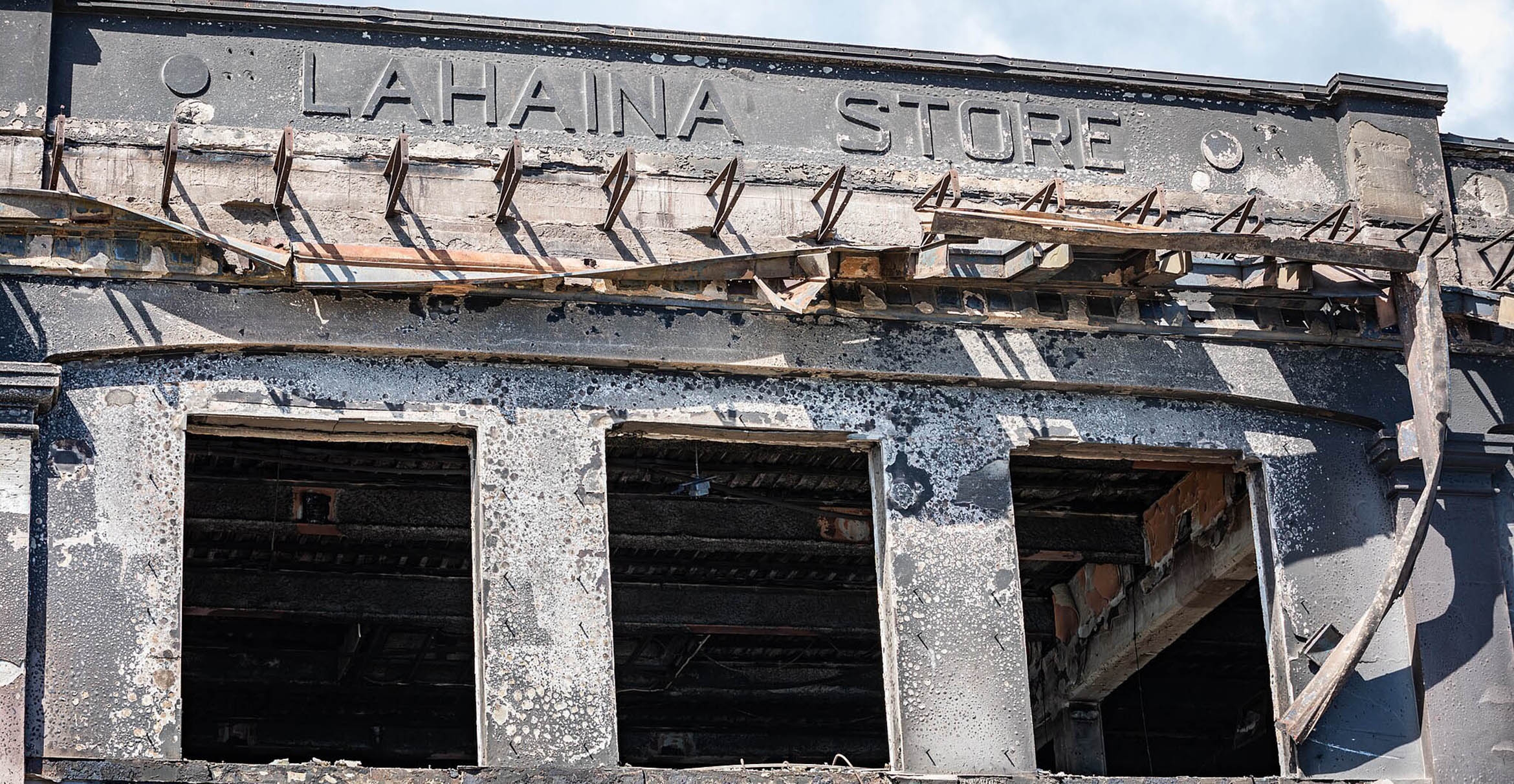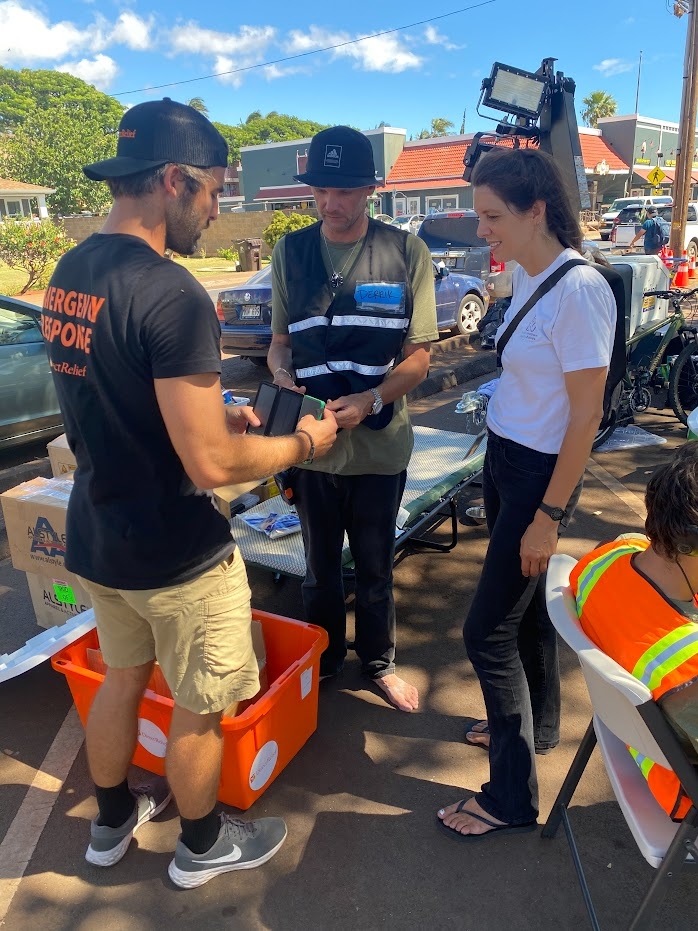
The smoke. The soot. The devastation. No one understands what it’s like to survive a wildfire … except another survivor of wildfire. So when Lahaina called for aid in the wake of the disastrous fires in West Maui earlier this month, a couple of Santa Barbara-based organizations were quick to answer.
Upon hearing last week of the need for electricity, lighting and communication to help the local population to recover, Santa Barbara-based nonprofit Unite to Light, co-founded by UC Santa Barbara professor John Bowers, partnered with Direct Relief to send 600 solar Chandler Chargers and 150 solar-powered Luke Lights to Lahaina within days.
“We stand ready to help recovery efforts in Lahaina and around the world by providing efficient and clean sources of light and electricity to those who need them the most,” said Bowers, a professor of electrical and computer engineering and of materials, who is also the organization’s board chair.
It's a small but welcome boon compared to the extent of destruction the Hawaiian island has suffered. Up to 3,000 buildings — mostly homes — were damaged or destroyed. Thousands of people are left unhoused. As of the latest statistics, more than 100 people are still left unaccounted for in the wake of the deadly blaze, the costliest in the state’s history. The death toll stands at 115.
As the Lahaina community embarks on its long trek to recovery, the devastation left by the fire also made basic services difficult to provide. The first delivery of solar lights and chargers went to those providing much-needed medical services — midwives and others on the ground, running community clinics and pop-up centers.
“So far (Direct Relief) has distributed Luke Lights and Chandler Chargers to about 400 medical professionals and they’ll continue to distribute the remaining units over the next week,” said Megan Birney-Rudert, a self-described “solar nerd” who is also the president and CEO of Unite to Light. “Something we’ve heard a lot is that just having access and to be able to communicate with family and friends either on the island or away from the island has been really, really helpful.”
Unite to Light, co-founded by Santa Barbara-based attorney Claude Dorais, was started in 2009 initially to address the need for cheap, efficient lighting for school children in Africa. Lack of infrastructure in the more rural areas left kids without enough light to read and study by

after sunset. Based on reliable, durable LED technology that was developed at the university’s Institute for Energy Efficiency, the solar lamps have also proved themselves useful in the aftermath of disaster and conflict; Unite to Light has previously sent them to Florida and Fukushima, Japan post-hurricane and to Ukraine post-invasion to assist recovery efforts in those places.
The chargers, meanwhile, can also store up solar power and act as batteries for wi-fi hotspots.
At the moment, people and recovery personnel are still processing the aftermath of the disaster and trying to regain stability after all the chaos. Birney-Rudert and her team at Unite to Light are awaiting more information from Direct Relief’s boots on the ground and are ready to fulfill more requests for light, electricity and wireless communications.
Making and sending their Luke Lights and Chandler Chargers to quickly respond to current and future emergency situations means the organization is “kind of always in fundraising mode,” she said.
“What’s really nice is when we have extra funds, so when disasters happen, we can move like this,” she said. “We’re always trying to build and maintain a store of products that we can get out when they’re really needed in these emergencies, because they happen all the time.”
To find out more about Unite to Light and to chip in to help their efforts in Maui and around the world, visit unitetolight.org.
Sonia Fernandez
Senior Science Writer
(805) 893-4765
sonia.fernandez@ucsb.edu



